SPEAKERS
Main Conferences

Dr. Jorge Castillo Guerra
He was born in Panama and is currently a professor at Radbout University in Nijmegen, the Netherlands. His research focuses on the theology of migration, with a focus on the processes of identity and religious transformation of migrants and their contribution to social coexistence. Intercultural philosophy, intercultural hermeneutics and decolonial thinking are also themes he focuses on.
His lecture will take place on 19/05/2025, at 6pm, with the theme: Human mobility: itineraries for humanizing coexistence.
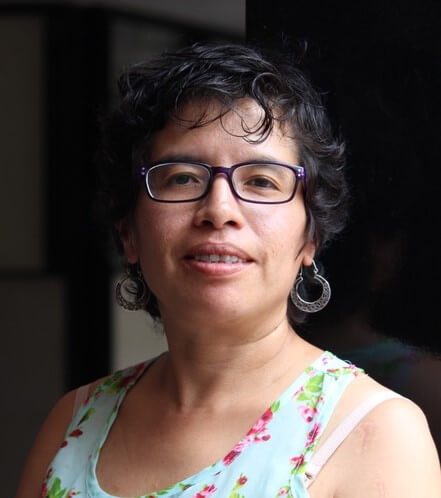
Dr. Amarela Varela-Huerta
Professor and researcher at the Academy of Communication and Culture of the Autonomous University of Mexico City. Apprentice feminist committed to the co-production of chronicles on the struggles of migrants (and the practices of death against them) narrated from the experience and knowledge of the people on the move themselves. She collaborates with different action-research groups on migration and feminisms.
Topic of his talk on 20/05/2025 at 6pm: A dialog between luchas migrantes: the pencils for hospitality in Latin America

Dr. Rose Jaji
Born in Zimbabwe, she holds a PhD in Anthropology from the University of Bayreuth, Germany. She is currently a lecturer and researcher at the German Institute of Development and Sustainability. Her doctoral thesis focused on the integration of refugee women in Nairobi, Kenya. Her areas of research interest are migration and refuge, gender, conflict and peacebuilding.
Topic of his talk on May 21, 2025 at 6 p.m: Problematizing the problem of migration.
ROUND TABLES:
Round Table 1: Human Mobility in the Americas

Janete Ferreira
She is a Brazilian Scalabrinian Missionary. Sociologist, with a postgraduate degree in Anthropology from the Political University of São Paulo, a Master's degree in Sociology from the Pontifical Catholic University of São Paulo and a Master's degree in Migration, Gender and Gender Violence from the Foundation for Cultural and Social Studies, Valencia, Spain. She is currently General Councillor and Apostolate Animator for the MSCS Congregation.

Andreas E. Feldmann
He holds a PhD in Political Science from the University of Notre Dame. He is currently an associate professor in the Latin American and Latino Studies Program and the Department of Political Science at the University of Illinois at Chicago, as well as a Principal Investigator of the Global Immigration Initiative at the same university. His areas of research interest are: forced migration, terrorism, criminal policy, human rights and foreign policy.

Emmanuel Saula Kitambala
Gaucho by choice, Congolese at heart, he is a community leader in humanitarian actions in Gramado and Canela/RS and an activist for the rights of migrants and refugees. With a degree in Mathematics and Computer Science (University of Kinshasa) and Systems Technology (IFSUL Pelotas), he uses his expertise to organize logistics and mobilize solidarity networks, such as during the disaster in Rio Grande do Sul, where he coordinated assistance for more than 40 immigrant families (Haitian, Congolese, Venezuelan and others).

Devi Machete
He is a cross-border migrant organizer and co-founder of the collective Contra Viento y Marea - El Comedor Comunitario (CVM)based in Tijuana, Baja California, Mexico. Working for more than 20 years between the United States and Mexico, Devi develops initiatives aimed at directly supporting migrants and LGBTQIA+ people, with work that combines political activism, humanitarian action and cultural production. A feminist and political dissident, she is also a writer, artist and photographer. She has a master's degree in Gender Studies with an emphasis on politics from the Claremont Graduate University (California, USA).
Round Table 2: Public Policies for People on the Move
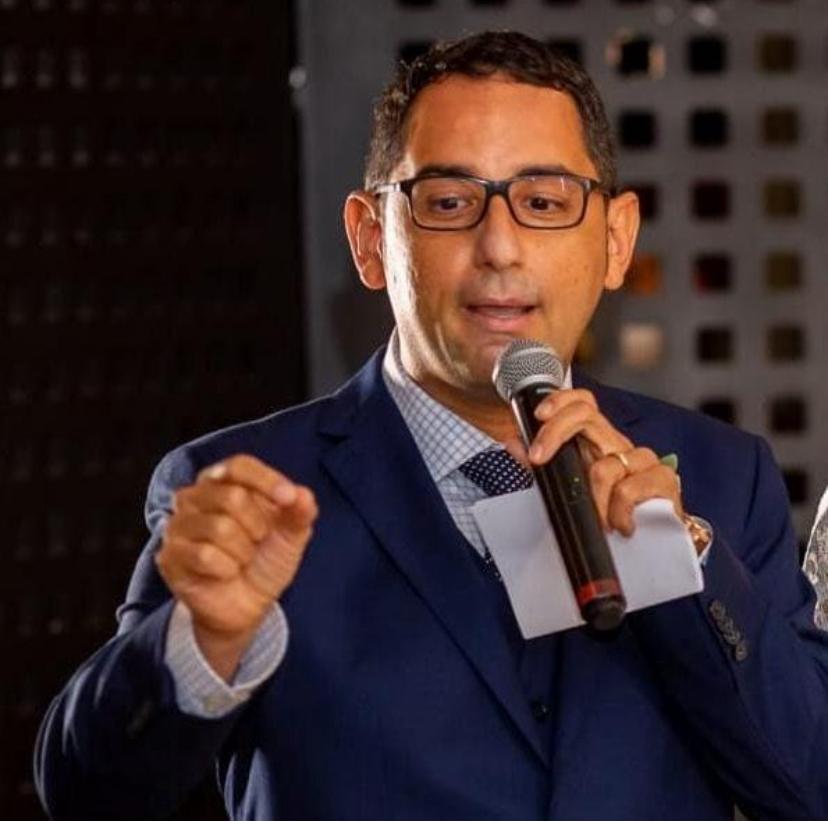
Leonardo Cavalcanti
Associate Professor at the University of Brasilia (UnB) - Institute of Social Sciences - Department of Latin American Studies, Research Productivity Fellow (CNPq PQ 2) and Scientific Coordinator of the Observatory of International Migration (OBMigra). He is currently developing comparative studies on Latin American migrations, with an emphasis on the transnational perspective of migrations; the labour market, the sociology of migrations; cities and cosmopolitanism; globalization and multiculturalism.

Edna Stefania A. Co.
She holds a PhD and is a Professor of Public Administration. Former Director of the National College of Public Administration and Governance at the University of the Philippines. Global Mentor - United Nations Institute for Training and Research (UNITAR). Member of the Policy and Strategy Committee of the Association of Asian Social Science Research Councils (AASSREC), Canberra. Consultant to the Institute of Legislation and Legislative Governance of the House of Representatives of the Republic of the Philippines. Member of the Board of Directors of the Philippine-American Academy of Science and Engineering (PAASE).

Luciana Gandini
She holds a doctorate in social sciences with a concentration in sociology from the College of Mexico (COLMEX). She is a Senior Researcher at the Institute of Legal Research of the National Autonomous University of Mexico (UNAM), in the area of sociology of law. She is the Coordinator of the University Seminar on Internal Displacement, Migration, Exile and Repatriation (SUDIMER), which brings together and promotes research on migration and human mobility at UNAM. She specializes in migration and refugee policies in Mexico and Latin America, as well as the labor and socio-legal integration of people on the move in south-south and south-north migratory flows. Her most recent research interests include: international migration, development and human rights; voluntary and involuntary migration; the Venezuelan exodus and Central American caravans; and qualitative and quantitative research methods.

Bela Feldman-Bianco.
She holds a PhD in Anthropology from Columbia University and a post-doctorate in History from Yale University. She is Senior Professor of Social Anthropology at the University of Campinas - UNICAMP, founding member and first director of the Center for International Migration Studies (CEMI) and senior researcher at the National Council for Scientific and Technological Development (CNPq). She received the Gilberto Velho Award for Academic Excellence from the National Association of Graduate Studies in Social Sciences (ANPOCS) in 2017, the Roquete Pinto Award for her contributions to Brazilian Anthropology from the ABA (2014), among other honors. She was president of the Brazilian Anthropology Association (2011-2012), co-chair of the Study Group on Migration, Culture and Politics of the Latin American Council of Social Sciences (2011-2013) and of the World Anthropology Committee of the American Anthropology Association (2012-2013). She is currently an advisor to the National Immigration Council, where she represents the Society for the Advancement of Science (SBPC) and an elected member of the Board of Directors of the World Council of Anthropological Associations, where she represents the Brazilian Anthropology Association, among other activities.
Roundtable 3: How does civil society value/humanize/strengthen the role of migrants and refugees?

Flavia Reis
Lawyer with a career dedicated to defending the rights of migrants and refugees. She is currently the National Director of the Jesuit Service for Migrants and Refugees - SJMR Brazil, based in Brasilia. She leads SJMR's national strategy, focusing on protection, socio-economic integration and political advocacy. She has worked as a project coordinator and analyst in the context of a humanitarian emergency in the state of Roraima and has also worked as a legal advisor, with experience in institutional coordination and direct assistance to migrants and refugees.

Luis Enrique Garcia Rodriguez
He is a systems technician, a Venezuelan refugee living in Ecuador and has worked for several years as a leader of organized civil society in defence of the rights of people on the move. He is president of the Asociación de Venezolanos, Asambleísta Ciudadano de Movilidad Humana and current president of the Consejo Consultivo Cantonal de Movilidad Humana. From her personal trajectory and community engagement, she has specialized in promoting inclusive public policies for refugees and migrants in Ecuador, contributing to institutional and collective spaces for the dignity, citizenship and integration of displaced people.

Maria Ozania da Silva
With a degree in History from the State University of Goiás (UEG), a specialization in Agrarian Law from the Federal University of Goiás (UFG), and a degree in Theology, Maria Ozania works as the Executive Secretary of the Pastoral Service for Migrants (SPM), an organization linked to the CNBB's Episcopal Pastoral Commission for Sociotransformative Action.
Her career is marked by her commitment to internal migration, refuge and popular education, with an emphasis on advising on the training of SPM agents in various regions of Brazil. Her topics of interest include philosophy, culture, history, politics and religion, with a critical and engaged approach to transforming reality based on the concrete experiences of people on the move.

Dr. Amarela Varela-Huerta
Professor and researcher at the Academy of Communication and Culture of the Autonomous University of Mexico City. Apprentice feminist committed to the co-production of chronicles on the struggles of migrants (and the practices of death against them) narrated from the experience and knowledge of the people on the move themselves. She collaborates with different action-research groups on migration and feminisms.
Round Table 4: Africa

Igor Borges Cunha
He is an analyst at the Scalabrinian Center for Migration Studies (CSEM) and a master's student in Comparative Studies on the Americas at the University of Brasilia (UnB). His career combines academic research and practical work on migration, access to rights, development and the role of populations in mobility, with a special focus on Latin America and Africa. Igor has experience in field research on international borders and in analyzing public policies aimed at migrants, refugees and stateless people.
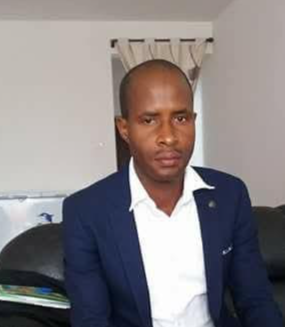
Kalilu Ibrahim
The son of a Sudanese father and a Guinean mother, I was born in Sudan and grew up in Guinea Conakry, where I had the opportunity to study. He has been a refugee under the international protection of the United Nations in Angola since 2007. He is the general coordinator of the Association for the Welfare of Refugees in Angola - ABRA, legalized by the Angolan state.

Armando Bernardo Tonela
He is a social activist at the Scalabrini Center in Ressano Garcia, Mozambique, where he works as a social educator and project assistant. He is a final year student in Political Science and International Relations. Armando has further training in Project Monitoring and Evaluation, Psychosocial Support, Human Rights and Methodological Strategies. His career combines a commitment to education, the defense of human rights and the strengthening of practices to welcome and protect mobile populations.

Michael Mutava Mulei
He is an economist with experience in trade, capital markets and regional integration. He is currently a researcher at the New South Institute and a Master-Card Scholar, and is interested in the role of finance in Regional Integration Studies. He studied at Kenyatta University in Kenya for his undergraduate degree and at the University of Cape Town in South Africa for his master's degree. He was a consultant at the African Institute for Policy Analysis and Economic Integration, working for COMESA, as well as a project coordinator at the Nelson Mandela School of Public Governance in Cape Town, South Africa.
Round Table 5: Europe
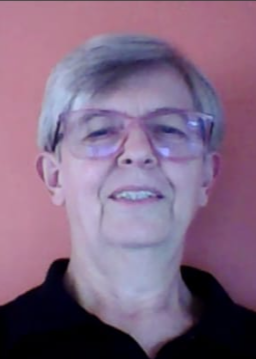
Sr. Marlene Wildner
She has been a Scalabrinian missionary for 40 years and has dedicated herself to the cause of migration on different continents. She began her mission with Italian immigrants in the Diocese of Rottenburg-Stuttgart, Germany, and participated in the founding of the Bienvenu Welcome Center in Johannesburg, South Africa, for refugee women and children. He was also involved in setting up the Pastoral Healing Department for Refugees in the Diocese of Johannesburg.
In Angola, she was National Director of the Jesuit Refugee Service, leading emergency actions at the end of the war and in repatriation programs. Between 2009 and 2014, she was General Director of Caritas Angola, reorganizing the institution in the post-war context and coordinating the international conference "Building Peace in Angola" in 2011. She was director of CSEM from 2015 to 2019, being responsible for organizing the first ICoMiR, and resumed the direction of the institution in 2022.

Maurizio Ambrosini
He is Professor of the Sociology of Migration at the University of Milan, in the Department of Social and Political Sciences, in charge of teaching at the University of Cote d'Azur (France) and has taught courses on the Sociology of Migration at the Italian campus of Stanford University and at Sciences Po University in Paris. He is also editor of the journal Migrant World and director of the Italian Summer School on the Sociology of Migration in Genoa. He is also a member of the Scientific Council of the Journal of Immigrant and Refugee Studies (since 2010) and of several Italian scientific journals. His research mainly deals with irregular immigration, labor markets, migration policies at national and local level, transnational families, asylum seekers and refugees. He leads the Commission on Integration Policies for Foreign Citizens at the National Council for Economy and Labor (CNEL).

Ryyan Alshebl
He is the mayor of Ostelsheim, in Baden-Württemberg, Germany. Born in Syria, Ryyan's life was transformed by the civil war and, in 2015, he had to leave his country, crossing Lebanon, Turkey and Greece to reach Germany. The experience of migration profoundly shaped his trajectory, leading him to take on responsibilities and engage in the public life of his new country.
After his arrival, Ryyan began his integration into German society by working in the local public administration. In 2016, he began an internship in municipal government and graduated as an administration specialist, overcoming challenges such as the language barrier. His interest in politics and strengthening local democracy motivated him to run for mayor of Ostelsheim, and he was elected in 2023 with the support of the local community. His election had international repercussions, symbolizing paths of welcome, participation and democratic renewal.
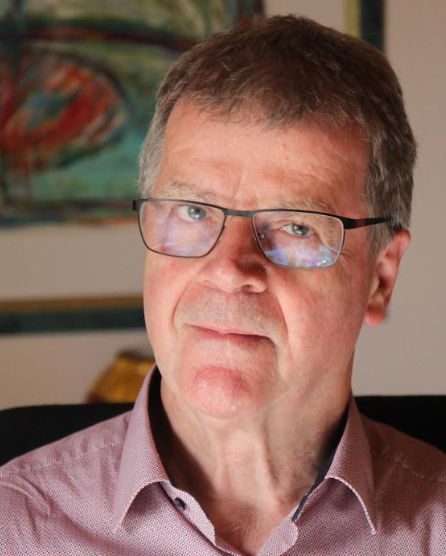
Thomas Broch
Dr. Thomas Broch is a Catholic theologian and journalist. He worked as press officer for Caritas Germany and later for the Diocese of Rottenburg-Stuttgart in southwest Germany. He was also Episcopal Commissioner for Refugees. He currently works as a freelance journalist in the Global Church Department of the Diocese of Rottenburg-Stuttgart. He has a long-standing collaboration with CSEM and the Scalabrinian Missionary Sisters.
Round Table 6: Asia

Michelle Rubido Pulambarit
Yonsei University (2016) MA in Korean Studies Yonsei University (2012) MA in Asian Studies UP Diliman (2007). Director of UP-CIFAL Philippines; Associate Professor at Asian Center UPD; Coordinator of Korean Studies and Languages at SNU. A specialist in Korean Studies and a political scientist, my major interests are Filipino migration to Korea, Korea-ASEAN relations, and Korean society, culture and politics. Equally important to these interests is my attention to the dynamic relationships between government and civil society in environmental policy and sustainable development. Areas of interest: Korean society, culture and politics, Filipino migrants in Korea, Korea-ASEAN relations, environmental policy.

Nasrikah Paidin
She is an Indonesian migrant worker who has lived in Malaysia for over twenty years. She has worked as a domestic worker and experienced various vulnerabilities, including exploitation, discrimination and denial of access to justice. Unfortunately, migrant domestic workers in Malaysia continue to face these challenges to this day. Reflecting on her own experience, in 2014 she decided to act as an advocate for migrant workers' rights, focusing on campaigning against the injustices and mistreatment suffered by migrant domestic workers in Malaysia.
Nasrikah is currently an advisor and coordinator for the Indonesian Migrant Domestic Workers Association (PERTIMIG). She offers assistance and support to Indonesian domestic workers to deal with a wide range of issues, including unpaid wages and cases of abuse. In addition, she is a prolific poet and has a passion for arts and culture. Throughout her career as an advocate for migrant workers' rights, she has organized various artistic and cultural events.

Elizabeth Pedernal
She is a member of the Congregation of the Missionary Scalabrinian Sisters (MSCS) and is currently the delegate superior of the MSCS Sisters in Asia. She holds a Master's degree in Education - Guidance and Counseling, a post-graduate diploma in Special Education and a diploma in Leadership. As a Scalabrinian missionary, she was sent to the mission in the USA and in Rome, Italy, both in administrative and missionary work with migrants (Latinos/Mexicans in the USA and Filipinos in Rome), developing and engaging in welcoming, promoting, protecting the dignity and rights of migrants, both locally and internationally, in emergency response and intervention. She was a member of the Advisory Board of the Office of Immigrant Affairs and Immigration Education, Archdiocese of Chicago, USA, from 2009 to 2011, working with irregular and deported migrants, and victims of labor and human trafficking. She is currently active in Talitha Kum - Philippines and Asia; Board member of VIVAT Philippines, International and Board member of Anawim Mission.

Edna Stefania A. Co.
She holds a PhD and is a Professor of Public Administration. Former Director of the National College of Public Administration and Governance at the University of the Philippines. Global Mentor - United Nations Institute for Training and Research (UNITAR). Member of the Policy and Strategy Committee of the Association of Asian Social Science Research Councils (AASSREC), Canberra. Consultant to the Institute of Legislation and Legislative Governance of the House of Representatives of the Republic of the Philippines. Member of the Board of Directors of the Philippine-American Academy of Science and Engineering (PAASE).
Round Table 7: Migration/refuge and intersectionalities
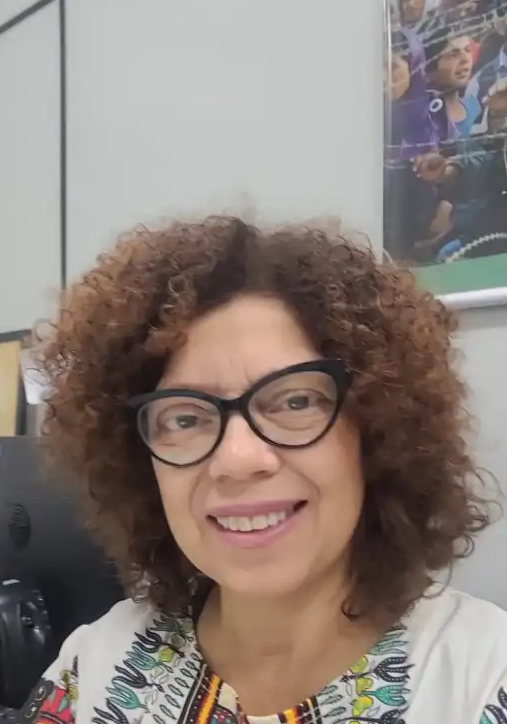
Gláucia de Oliveira Assis
PhD in Social Sciences from the State University of Campinas, with post-doctoral studies at ISCTE - University of Lisbon and at the Center for Population Studies - NEPO (UNICAMP). Professor at the Vale do Rio Doce University in the Postgraduate Program in Integrated Territory Management. Coordinator of the Santa Catarina Migration Observatory (Obmigra-SC), Vice-Coordinator of the Gender and Family Relations Laboratory (Labgef). Full member of the State Council for Women's Rights (2021-2023). She has experience in the areas of Population Studies, Demography and Anthropology in their articulations with gender, working mainly on the following themes: contemporary migrations, social networks, Brazilian emigrants, gender and international migrations..

Delia Dutra
PhD in Sociology from the University of Brasilia, with a Post-Doctorate in Social Sciences in the Comparative Studies Program on the Americas at the same university. Assistant Professor in the Department of Social Sciences, CENUR LN, Universidad de la República, Uruguay. Level 1 researcher in Uruguay's National System of Researchers, ANII. Collaborator with the Scalabrinian Center for Migration Studies (CSEM) since 2007. Member of the Editorial Team of REMHU, Interdisciplinary Journal of Human Mobility, since 2006. Main areas of interest: international migration, gender and intersectionality, media discourse analysis, social research methodology.

Barbara Marques
PhD student in Social Anthropology at the University of Brasilia. She is a member of the research team at the Scalabrinian Center for Migration Studies (CSEM), where she investigates the experiences of returnee women with disabilities and caregivers of returnee migrants with disabilities in Honduras. She is the Editorial Assistant of the Interdisciplinary Journal of Human Mobility (REMHU). Throughout her training, she has carried out ethnographic research on housing, gender, health and migration.

Renata de Melo Rosa
She holds a PhD in Anthropology of Latin America and the Caribbean from the University of Brasilia and a post-doctorate from the Institut National d'Adminstration, Géstion et Hautes Études Internationales of the State University of Haiti (2007). She is an associate researcher at the Ideaz Institute - Vienna/Austria and Director of the Maria Quitéria Institute and President of the Dominican-Brazilian Chamber of Social Entrepreneurship. She coordinated the International Relations course at the University Center of Brasília (Uniceub) from 2006 to 2019. She has experience in Anthropology, Sociology and International Relations, working mainly on the following topics: the political history of Haiti; racism and "fragile" states; racism and the insufficiency of post-colonial states; the deficit in the participation of black women in Brazilian, Latin American and Caribbean politics, critical analysis of UN civil stabilization missions and the inclusion of gender and race in South-South cooperation strategies.

Maurizio Ambrosini
He is Professor of the Sociology of Migration at the University of Milan, in the Department of Social and Political Sciences, in charge of teaching at the University of Cote d'Azur (France) and has taught courses on the Sociology of Migration at the Italian campus of Stanford University and at Sciences Po University in Paris. He is also editor of the journal Migrant World and director of the Italian Summer School on the Sociology of Migration in Genoa. He is also a member of the Scientific Council of the Journal of Immigrant and Refugee Studies (since 2010) and of several Italian scientific journals. His research mainly deals with irregular immigration, labor markets, migration policies at national and local level, transnational families, asylum seekers and refugees. He leads the Commission on Integration Policies for Foreign Citizens at the National Council for Economy and Labor (CNEL).
Colloquium

Rockmillys Basante Palomo
A Venezuelan refugee in Brazil, Rockmillys Basante Palomo is the founder and president of the CSO Ação Social Irmandade Sem Fronteiras and coordinates the Coalición por Venezuela in Brazil. She represents the leaders of the Venezuelan diaspora in Latin America and the Caribbean. She was the first refugee woman to be a member of strategic bodies such as CERMA (Acre State Committee for Refugees and Migrants), CEDM (Acre State Human Rights Committee) and COPEDH (Acre Human Rights Defense Council), among other spaces for formulating and monitoring public policies.

Sr. Rosa Maria Martins
Journalist MSCS (São Paulo, SP - Brazil), Rosa Maria Martins Silva is from Inhapim, Minas Gerais. She works as a Scalabrinian Missionary at the service of migrants and refugees. She has a degree in Philosophy, Theology and Journalism. She holds a master's degree in Social Communication and worked for several years at the National Conference of Religious of Brazil (CRB Nacional), where she founded the Communication sector. She worked in the Dicastery for Communication (Vatican Radio). Winner of the CNBB Communication Award (Pope Francis Masters Award), she was also nominated for the Adelmo Genro Journalism Award. She advises Consecrated Religious Life with a focus on communication as a tool for transforming community life.
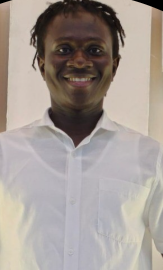
Macaio Upecor Gomes Cacabro
He is president of AEGBEC - the Association of Guinea-Bissau Students in the State of Ceará and works in the State Program for Attention to Migrants, Refugees and Combating Trafficking in Persons of the Ceará Human Rights Secretariat, dedicating himself to the fight for rights and inclusion. As well as being a percussionist, singer and composer, he also stands out in the academic field, holding a master's degree in Computer Science from the Federal University of Ceará, with research in Information Systems. His career brings together culture, technology and activism, strengthening the migrant community and promoting social transformation.

Constance Salawe
She is of Cameroonian origin and Nigerian nationality. She is a Municipal Councillor for Immigrants in the city of São Paulo. FShe majored in sociopsychology, as well as tourism and travel, a field she worked in for almost 12 years. When she arrived in Brazil, she trained as a foreign language teacher.

Rocío del Bravo Shuña
Indigenous Andean migrant, Psychologist, PhD in Social Psychology - USP. Member of the Observatory of Health and Migration of UFSCar, FENAMI and the Committee for Integral Health of the LGBTI+ Population of São Paulo. For more than ten years she has been working from an intersectional and intercultural feminist perspective on international migration, human rights, humanized care, access to rights and public policies. MILBi+ Network activist. Technical advisor to the Ministry of Health.
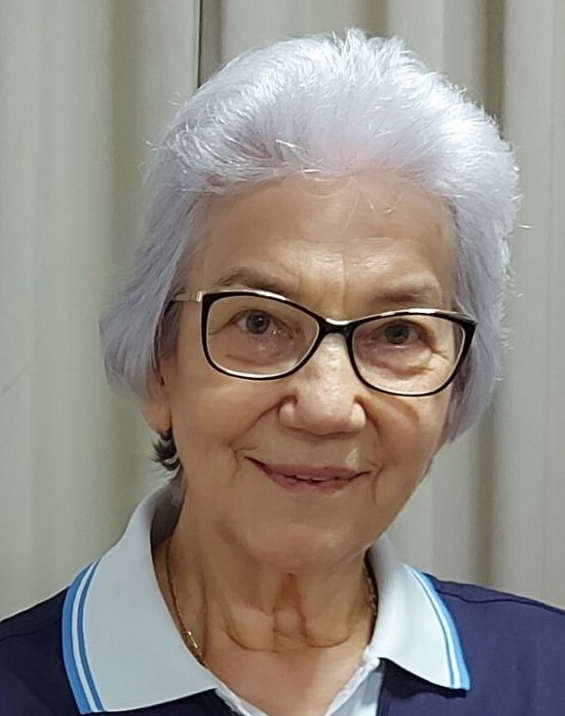
Sr. Rosita Milesi
It's scalabriniain. Lawyer. Director of the Migrations and Human Rights Institute (IMDH), and coordinator of the Solidarity Network for Migrants and Refugees (RedeMiR). She holds a Master's degree in Migration from the Pontifical Comillas University in Spain. She is an observer member of the National Committee for Refugees (CONARE) and a coordinating member of the CLAMOR Brazil Network. He is a member of the Board of Directors of the Scalabrinian Foundation, based in Rome. He received the 2024 Global Nansen Refugee Award from the United Nations High Commissioner for Refugees (UNHCR).
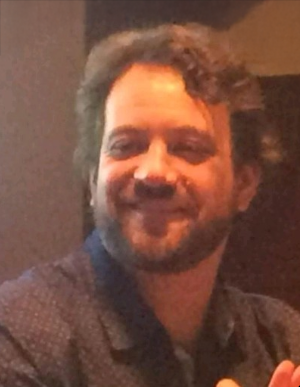
Paulo Illes
Executive director of the Centre for Human Rights and Immigrant Citizenship (CDHIC) and general coordinator of Rede Sem Fronteiras (Network Without Borders), which brings together 18 organizations working in Latin America, Spain and Portugal. He also works as a consultant on migration and refuge. He was general coordinator of migration policy and deputy director of the Migration Department of the Ministry of Justice and the first general coordinator of migration policy in São Paulo.

Gaia Mormina
Secretary General of the Scalabrinian Foundation and Scalabrinian laywoman. She has a degree in European and Extra-European Languages and Cultures, and a master's degree in Economics and Business Management. She has directed the inclusion and education programs of the Holy Latin American Catholic Mission in Rome. She is a contact person for the Vivat International network, a board member of the Focsiv network and a member of the Red de Clamor. She collaborates with the UNHCR, the CEI, the Migrants Foundation and other international partners in accompanying projects to support migrants and refugees, with a particular focus on women and children in Italy and abroad.
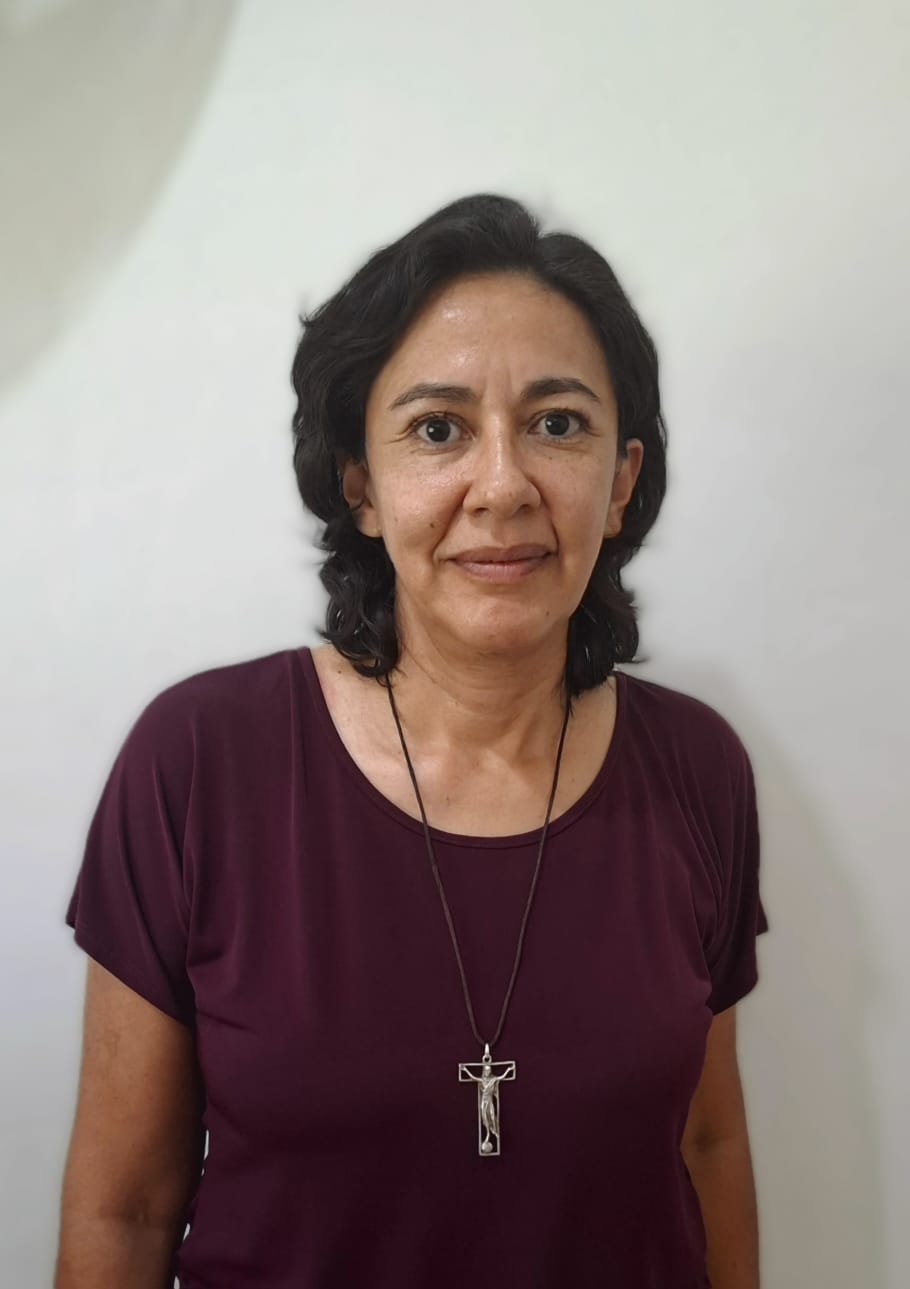
María Eugenia Vázquez
Scalabrinian Missionary Sister of Argentinian nationality. She has a degree in Philosophy from the University of Caxias do Sul-Brazil, and a degree in Sociology from the University of Salvador, Buenos Aires-Argentina. She is the co-organizer of volume 4 of the Ecumene Series: Consecrated life through the cry of forced migrations.

Devi Machete
He is a cross-border migrant organizer and co-founder of the collective Contra Viento y Marea - El Comedor Comunitario (CVM)based in Tijuana, Baja California, Mexico. Working for more than 20 years between the United States and Mexico, Devi develops initiatives aimed at directly supporting migrants and LGBTQIA+ people, with work that combines political activism, humanitarian action and cultural production. A feminist and political dissident, she is also a writer, artist and photographer. She has a master's degree in Gender Studies with an emphasis on politics from the Claremont Graduate University (California, USA).
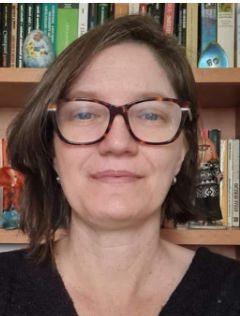
Raquel Boing
Bachelor of International Relations
Master in Political Science.
Professor at CEUB (Brasília-DF), where she leads the extension project Balcão do Refugiado.
Member of the Child Protagonists Network.
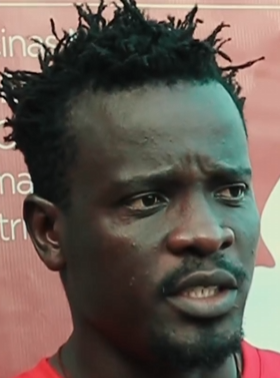
Francis Angmortey
He is a Ghanaian artist and educator whose musical career began as a child, influenced by his multi-instrumentalist father. He grew up participating in the music group of St. George's Anglican Church in Burma Camp. With a solid background in the Ga-Adangme musical tradition, Francis was a member of prominent Ghanaian bands such as the Allan Family and collaborated with renowned musician Charles Amoah. In 2018, he was honored with the title Ga "Nye Kpakpa" for his contribution to traditional Ghanaian music. Based in Brazil, he has become a reference in Afro-descendant cultural and educational initiatives. He led the "Jama De Gana Cultural Union" and founded the group Ga-Starwith which he promotes traditional Ghanaian musical repertoires and Afro-Brazilian compositions.

Marcelo Patrocínio Bruzinga
Lawyer, migration researcher and member of the Human Rights and International Law Committees of the OAB Foz do Iguaçu/PR sub-section.

Paola Bolognesi
She is a Senior Protection Officer at the UNHCR Office in Brasilia, with over 13 years' experience in the humanitarian sector. Her professional career spans Europe, Africa and Latin America, where she has worked in various areas, including Protection, Inter-Agency Coordination, Field Coordination and Donor Relations. Paola holds a bachelor's and master's degree in Political Science and International Cooperation from the University of Bologna in Italy. Her academic background also includes studies at the Institut d'Études Politiques in Paris and the Universidad Centroamericana in Managua, Nicaragua. She brings a rich, cross-regional perspective to her work, grounded in both field experience and academic rigor.
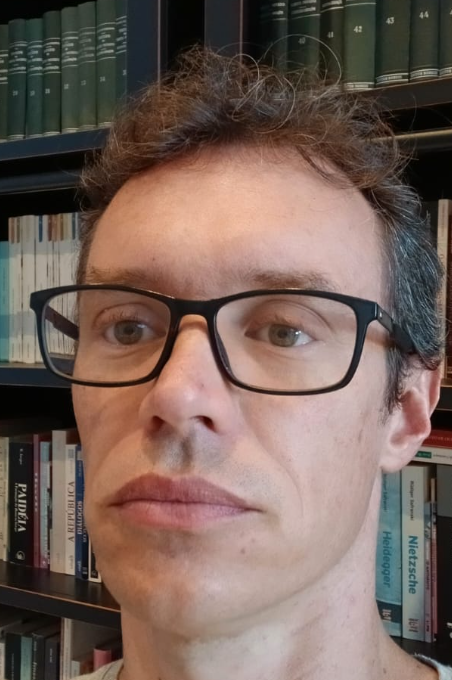
Gustavo Zortéa
Federal Public Defender working at the STF. He is a member of the DPU's Migration, Statelessness and Refugee Working Group. Has represented the DPU at CONARE for 7 years.

Roberto Marinucci
Theologian, director of the Interdisciplinary Journal of Human Mobility, REMHU, and researcher at CSEM.

Thais La Rosa
International relations analyst, psychologist and master in conflict resolution. Thais La Rosa has been working with migration, mental health and the socio-economic integration of people on the move for over 15 years. She is currently Project Coordinator at the International Organization for Migration (IOM) in Brazil, where she articulates public policies and integration actions in the states of Goiás, Mato Grosso and the Federal District. She has extensive experience in project formulation, inter-institutional coordination and political advocacy, having been director of the Center for Human Rights and Citizenship of Immigrants (CDHIC). She also provides clinical psychotherapeutic care with an intercultural approach. She holds a master's degree in Conflict Resolution from Portland State University and specializations in Mental Health and Migration (UNIFESP) and Brief Psychotherapy (UNIP), as well as a degree in Psychology and International Relations.

Eliane Alves da Silva
Social Worker with a postgraduate degree in Social Work, Manager for Combating Trafficking in Persons and Support for Migrants at the DF Secretary of State for Justice and Citizenship.
President of the district committee to combat human trafficking.
Appointed to the district committee to support refugee and stateless migrants.

Maria Isabel Del Valle Fernandez
She is a Venezuelan migrant woman and has lived in Brazil for six years. A production engineer, she is the co-founder of OCS Ação Social Irmandade Sem Fronteiras - the first Civil Society Organization created by migrants for migrants in the state of Paraná.
She was one of the first migrants to join social participation councils in Brazil, and currently holds the positions of Municipal Human Rights Councillor for Curitiba and State Councillor for Women's Rights in Paraná. For almost five years, she has been carrying out entirely voluntary work, dedicated to promoting dignity, inclusion and defending the rights of migrant populations.

Charles Pontes Gomes
Charles P. Gomes holds a PhD in Political Science from IUPERJ (Rio de Janeiro University Research Institute). In 2001, he defended his thesis "The Limits of Sovereignty: judges faced with the immigration issue in France and the United States". During his doctorate, he was a visiting researcher at the European University Institute in Florence, Italy, and at the Institut d'Etudes Politiques in Paris, France. His studies focus on constitutional and supranational courts, international law, immigration policies with a greater emphasis, currently, on nationality policies. She has published articles in English and French in international journals, participated in books on immigration policies and written reports on the subject of migration for international organizations.
Thematic Groups
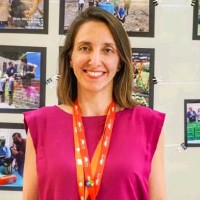
Eliza Donda
She is a lawyer, specializing in international law at UEL, human rights at the University of Coimbra, and has a master's degree in International Relations from UFABC. She has been working with migration and refuge since 2012, and currently coordinates the legal, documentation and protection areas of Missão Paz, a philanthropic institution that is a national reference in welcoming and defending the rights of migrants and refugees. She works directly on complex cases, networking and advocacy in public protection policies.
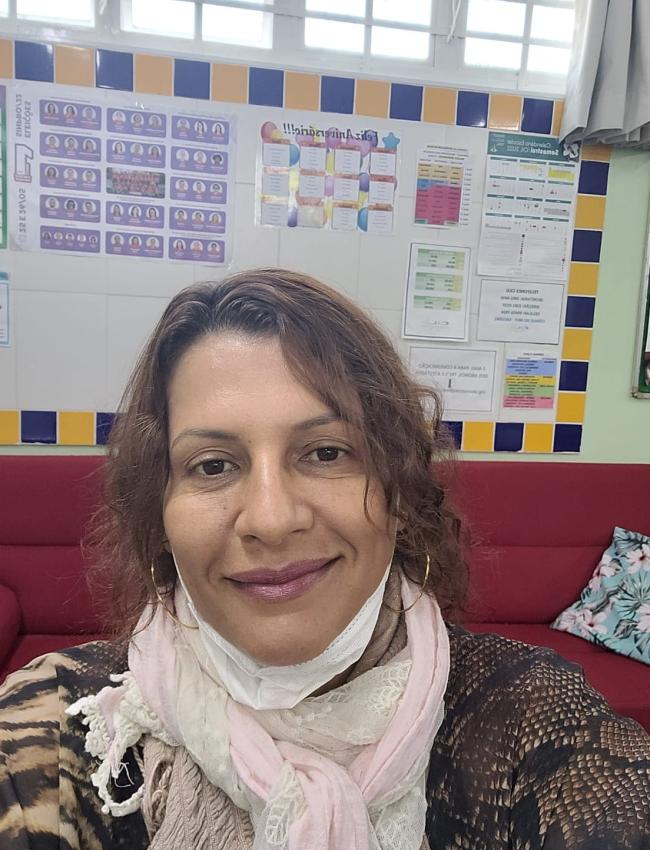
Fabíola Ribeiro de Souza
She is a teacher and researcher with an interdisciplinary background, with a PhD in Psychology, a Master's in Education and a degree in Portuguese, English and Pedagogy. She studies emotion and narratives and their role in human development. She has published empirical, theoretical and methodological studies related to minorities with a focus on development and human rights. In international migration, she is part of the UNB extension project "Portuguese Language of Reception and Human Development" and is part of the Pensamento e Cultura - Cnpq group. She has been a teacher in the Federal District for more than 30 years, teaching Portuguese to international migrants from the perspective of Welcome.

Susana Martinez
She is an Adjunct Professor at the Institute of Letters at the University of Brasília (UnB), in the Foreign Languages Applied to Multilingualism and the Information Society (LEA-MSI) course. She has a degree in Translation and Interpreting, a master's degree in Gender and Development, and a doctorate in Comparative Studies on the Americas (ELA/UnB). She works in the areas of international migration, gender, labor, sociolinguistics and human rights.
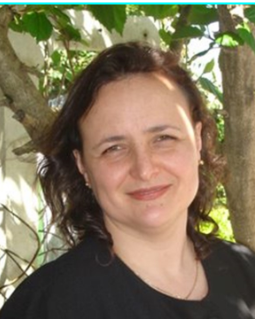
Maria Catarina Chitolina Zanini
Retired Full Professor in the Department of Social Sciences at UFSM (Federal University of Santa Maria). She has been a permanent lecturer in the Graduate Program in Social Sciences at UFSM since 2007. She is an anthropologist who has been researching historical and contemporary migrations since 1997, taking part in various national and international forums on migration studies. She has been a CNPq Pq 2 Researcher since 2012. She has been a member of Rede Infâncias protagonistas (UnB) since 2022 and NIEM-UFRJ (Interdisciplinary Center for Migration Studies) since 2006.

Denise Cogo
She is a Full Professor in the Postgraduate Program in Communication and Consumer Practices at ESPM (Escola Superior de Propaganda e Marketing) in São Paulo, where she coordinates the research group Displace - Interculturality, Citizenship, Communication and Consumption. She is a CNPq level 1C productivity researcher and an associate researcher at the Communication Institute of the Autonomous University of Barcelona, where she is also a member of the Unesco Chair of Communication. She coordinates the Migracine - Observatory of Cinema and Transnational Migration and is the author of Transnational Migration and Cultural Diversity Guide for CommunicatorsShe has published several articles on media and migration in national and international journals. She is a regular columnist on the Latin America21.
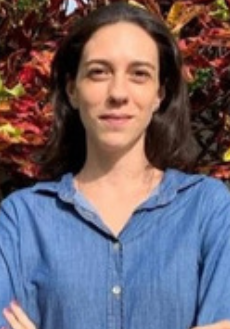
Julia Camargo
She has a PhD in Communication (ESPM) and a master's degree in International Relations (UnB). She teaches International Relations at the Federal University of Roraima (UFRR). Her research and work focuses on how migrants/refugees use digital technologies in the mobility process and how humanitarian response actors (States, International Organizations, Non-Governmental Organizations) use digital technologies to manage and control migratory processes on the Brazil-Venezuela border. She developed the thesis "Communication and appropriation of digital technologies by Venezuelan migrants in Brazil and Spain". She is a member of the research group Deslocar - interculturality, citizenship, communication and consumption.

Lucas Zanetti
Post-doctoral researcher at the Escola Superior de Propaganda e Marketing (ESPM) on a CNPq grant. PhD and Master's in Communication from Universidade Estadual Paulista (Unesp). Graduated in Social Communication: Journalism from the same institution. Professor at the Barão de Mauá University Center. Member of the research groups Deslocar (ESPM) and Comunicação Midiática e Movimentos Sociais - ComMov (Unesp). Ongoing research: Brazilians in Portugal and anti-immigration activism: communicative dynamics on digital platforms

Kleucielen Frota Ponte de Oliveira
Psychologist, coordinator of the Psychology course, lecturer and researcher at UNIBRAS Gama College. She has training and specialization in Mental Health and Psychosocial Care. She has a Master's degree in Psychology from the Catholic University of Brasilia and investigated the interfaces between spirituality and psychological suffering in her research Religiosity and Psychopathology: the perception of psychotherapists in mental health clinics. She is currently a PhD candidate in Psychology at UCB, where she is studying Religiosity and spirituality in online psychological care for immigrants: perceptions of psychologists. Her research focuses on the cultural, regional and clinical challenges involved in mental health care for mobile populations, with special attention to religious and cultural diversity.

Merlina Saudade Ferreira
She is a psychologist trained in Venezuela, with a degree recognized in Brazil by the UFRR. She specializes in neurolearning and is studying for a master's degree in psychology at UFSC. She is the director of the Ciranda sem Fronteiras project and a founding member of REDEVEN.
Since 2017, she has dedicated herself to activism for the rights of involuntary migrants, with an emphasis on the migration of women and children. She was a delegate at COMIGRAR, where she advocated for the recognition of migrants as a workforce with cultural and professional value.

Sr. Lidia Mara Sousa
Brazilian nun of the Congregation of the Missionary Sisters of St. Charles Borromeo, Scalabrinians. She has a degree in Philosophy from the Pontifical Catholic University of Paraná (PUC-PR) and specializations in Migration: Policies and Resources for Social Cohesion (LUMSA University, Rome - Italy) and in Spiritual Theology (Pontifical Institute of Teresian Spirituality, Rome - Italy). She has worked extensively in the pastoral accompaniment of people on the move and those who assist them, with a special interest in human rights issues, human mobility in its various forms, people defending the rights of migrant populations, missing persons and their families, as well as information and awareness-raising for social transformation.

Farida Acevedo
A Venezuelan-Mexican, Farida Acevedo is the director of the Fundación Humano y Libre A.C. in Mexico City, where she coordinates psychosocial support actions, humanitarian aid and guidance on refugee processes for migrants of various nationalities. She has a degree in Computing and a Master's degree in Agile Project Management Methodologies and Digital Transformation. She also works in the technology sector and has additional training in Human Rights of Children and Adolescents, NGO Management, Preventing and Combating Child Labor, Forced Labor and Human Trafficking, as well as Psychological First Aid for Migrants and Refugees.

Gloriane Antoine
She is Haitian, founder and president of the association FANM NWA - Empowered Immigrant and Refugee Womenan organization dedicated to promoting the rights, protagonism and dignity of women in situations of mobility. A multifaceted artist, she also works as an entrepreneur, composer and singer, integrating art as an instrument of resistance, cultural expression and social transformation. Her work combines activism, culture and entrepreneurship with a focus on freedom and humanitarian access to the rights of migrants and refugees.

Diana Mundarain
She is a sociologist, researcher and forced migrant, born in Carúpano, northern Venezuela. She graduated from the School of Sociology at the Universidad del Oriente (Sucre Center) and began her academic career in 1991. She worked as a Child and Adolescent Protection Councillor between 2004 and 2007, a position she won through a public competition. In 2007, she became a professor at the Universidad del Oriente, where she carried out full-time teaching and research activities and was promoted to Assistant Professor in 2015. Her career brings together academic commitment, institutional experience and direct experience of the dynamics of forced migration, which underpin her commitment to the defense of human rights and the critical analysis of contemporary mobilities.

Matheus Lira Bento
PhD student in Sociology at the Federal University of Pelotas (UFPEL), where he also obtained a Master's degree in Sociology. He has a degree in Law from the Catholic University of Pelotas (UCPEL) and a Lato Sensu postgraduate degree in International Law from the Estácio de Sá University. She has a scholarship from the Coordination for the Improvement of Higher Education Personnel (CAPES). Between 2022 and 2023, she completed a Sandwich Doctorate at Linköping University, Sweden, in the Migration, Ethnicity and Society Division (REMESO). Her research focuses on the sociology of international migration, expatriates and the sociology of violence. He is also a member and collaborating lawyer in the Study Group on Migration Policies and Human Rights (GEMIGRA) and the Legal Assistance Clinic for Immigrants and Refugees (CAJIR).

Carmen Lussi
Married, mother of 2, Italian-Brazilian. Specialist in migration and interculture, Missiologist, PhD in Theology from PUC-Rio. Advisor at the Scalabrinian Center for Migration Studies (CSEM).

Conrado Zepeda Miramontes
Religious of the Society of Jesus, with an ecclesiastical degree in Theology, civil licenses in Philosophy, Social Sciences and Theological Sciences, as well as a master's degree in Social Anthropology. He has worked with young people in vulnerable situations (such as drug users, those in prostitution or on the streets), with indigenous communities in the Lacandon Jungle (Chiapas) and in the spiritual accompaniment of LGBTIQ+ communities. He has worked directly with migrants and refugees for over nine years, being a member of the Jesuit Migrant Service and the Jesuit Refugee Service Board. He is currently a professor in the Department of Social Sciences at the Universidad Iberoamericana Puebla, where he also works with Mothers in Search, in the University Migration Program and in the defense of land and territory with indigenous communities in the Sierra Norte de Puebla. She is a member of the scientific committee of CSEM's Ecumene series and collaborates with CLAR's commission on migration, refuge and internal displacement.
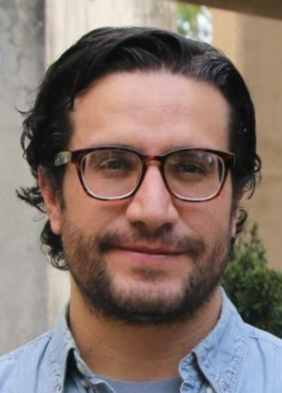
Guillermo Yrizar
He is a full-time professor and researcher in the Department of Social Sciences at the Universidad Iberoamericana Puebla, working in the areas of international migration and human rights. He holds a PhD in Sociology with a certificate in Demography from the City University of New York (CUNY Graduate Center) and is a level 1 researcher in Mexico's National System of Researchers (SNII).
Since 2021, he has coordinated the research-theoretical dimension of the Jesuit Network with Central American Migrants (RJM CANA) and is part of the University Program in Migration at IBERO Puebla. He has been a guest researcher at the University of California San Diego (UCSD) and affiliated with the Binational Migration Institute at the University of Arizona. Since 2024, he has been co-principal investigator of the Voces Buscadoras project on the disappearances of migrants.

Carolina de Abreu Batista Claro
Professor of international law, migration and refuge at the Institute of International Relations of the University of Brasilia. Pro bono lawyer for migrants, refugees, asylum seekers and stateless people since 2006. Consultant for governments, research institutes, international organizations and civil society organizations with an emphasis on migration policy, refuge, nationality and statelessness. Researcher at the Latin American Academic Network on the Law and Integration of Refugees (Rede LAREF), the Center for Studies and Research on Environmentally Displaced Persons (NEPDA/UEPB) and a member of the Global Academic Interdisciplinary Network (GAIN). Master in Sustainable Development (UnB), PhD in International Law (USP) and Post-Doctorate in International Relations (UnB).

Gennaro Avallone
He holds a PhD in Sociology and Social Research and works as an associate professor of Sociology of the Environment and Territory at the University of Salerno, in the Department of Politics and Social Studies. His research focuses on migration, borders, political ecology and institutional violence. His recent publications include: Introduction Sayad and the descendants of migrants: a fresh look (Italian Sociological Review, 2025), Sacrificed lives: normalized institutional violence against migrants in the Euro-Mediterranean region (Urban and Rural Sociology, 2024), A critique of the definitions of climate and environmental migration: towards a political ecology of migration (REMHU, 2024) and Environment, borders and migrationin the book Introduction to political ecology (il Mulino, 2023).
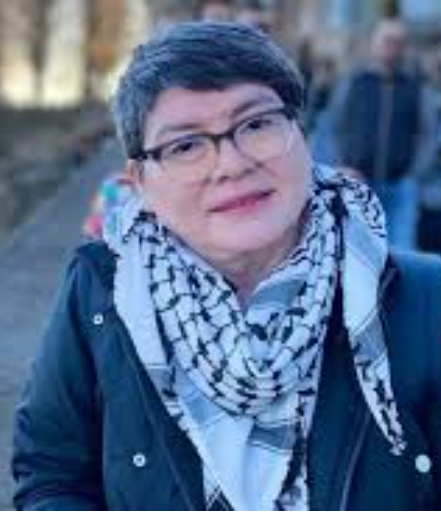
Sr. Leticia Valderrama Gutierrez
A Scalabrinian Sister, Leticia is the Executive Director of the Migrant Hospitality Ministry (MHM) of the Diocese of El Paso, Texas (USA). She has a degree in Social Philosophy with a specialization in Human Mobility from the Pontifical Urbaniana University (Rome, Italy) and a master's degree in International Migration from the University of Comillas (Spain). She has worked in reception and advocacy with migrants in transit through Mexico, in the reception of migrants in Guadalajara (Spain) and currently works in the border region between Mexico and the United States, especially with irregular migrants under threat of deportation.

Naira Wayand
She is the Climate Justice and Amazon Coordinator at Oxfam Brazil, a researcher for the international RIPERC network, and founder and advisor to the DuClima Institute. Specialist in Sustainability and Climate Change. A survivor and climate displaced person of the extreme event in Petrópolis in 2022, she is also a lecturer in the subject of Emergency and Climate Justice at the Postgraduate course in Designing Futures at the Pontifical Catholic University of Minas Gerais (PUC Minas). She led the drafting of Bill 1.594/2024, which establishes the first national policy for climate displaced people, currently before Congress. Naira works in public policy formulation, advocacy and the development of integrated socio-environmental solutions, connecting climate change, human rights and social justice, with a focus on protecting vulnerable people and territories.

Claudete Rissini
A Scalabrinian missionary and social worker with a degree from PUCRS, she works at the São Carlos Educational and Charitable Association, in Porto Alegre (RS), as a social project coordinator and school social worker. She is a member of the Extended Council of the Mary Mother of Migrants Province and actively participates in protection networks, such as the Permanent Forum for Human Mobility in RS, the State Committee for Migrants and the A Cry for Life Network.

Sueli Siqueira
Post-doctorate by the Center for Research and Studies in Sociology of the University Institute of Lisbon - CIES-IUL (2012) in International Migrations. PhD (2006) and MA (1998) in Sociology and Politics from the Federal University of Minas Gerais. She is a full professor at the Vale do Rio Doce University/UNIVALE and in the Integrated Territory Management/GIT Master's program. Coordinates the Center for Multidisciplinary Studies on Regional Development - NEDER / UNIVALE. Member of the Minas Gerais State Migration Observatory/OBIMINAS and the Brazilian Emigration Observatory. Develops studies on themes centered on the area of Urban Sociology with an emphasis on International Migration Studies. Author of books and articles on migration, work and gender.
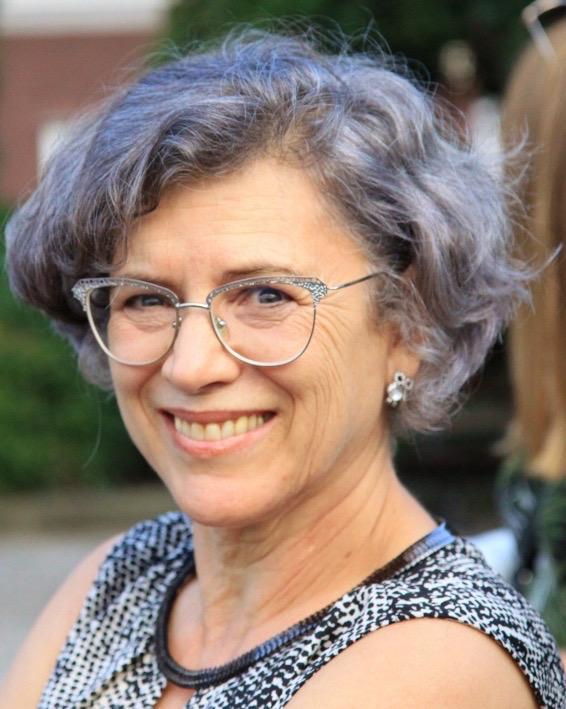
Marta Helena
She is a psychologist, with a master's and doctorate in Psychology, and post-doctorates in Psychology of Religion, Intercultural Psychology and Anthropology of Religion. She is a professor and researcher in the Psychology Program and the Undergraduate Psychology Course at UCB. She has produced a vast amount of technical and bibliographical material on the psychology of religion, thanatology, gerontology, Rorschach psychodiagnosis, phenomenology and psychology training. Lecturer at the UNESCO Chair on Youth, Education and Society - UCB. Coordinator of the "Religion, mental health and culture laboratory" - UCB. Member of CRIARCOMC (Creativity, Innovation, Communication, Marketing and Cities) - USP. CNPQ Research Productivity Fellow. Honorary Research Fellow at the University of Wales Trinity Saint David. Member of the American Psychology Association - APA. President of the International Association for the Psychology of Religion - IAPR.

Delia Dutra
PhD in Sociology from the University of Brasilia, with a Post-Doctorate in Social Sciences in the Comparative Studies Program on the Americas at the same university. Assistant Professor in the Department of Social Sciences, CENUR LN, Universidad de la República, Uruguay. Level 1 researcher in Uruguay's National System of Researchers, ANII. Collaborator with the Scalabrinian Center for Migration Studies (CSEM) since 2007. Member of the Editorial Team of REMHU, Interdisciplinary Journal of Human Mobility, since 2006. Main areas of interest: international migration, gender and intersectionality, media discourse analysis, social research methodology.

Marcos Moreno
Geographer, graduated from the University of Costa Rica (2011-2017), with a master's degree in Geography from the Federal University of Bahia (2018-2021). He is currently a PhD candidate in Social Sciences, in the line of Comparative Studies on the Americas, at the University of Brasilia (since 2021).

Igor Borges Cunha
He is an analyst at the Scalabrinian Center for Migration Studies (CSEM) and a master's student in Comparative Studies on the Americas at the University of Brasilia (UnB). His career combines academic research and practical work on migration, access to rights, development and the role of populations in mobility, with a special focus on Latin America and Africa. Igor has experience in field research on international borders and in analyzing public policies aimed at migrants, refugees and stateless people.

Ámbar González
She is a Venezuelan migrant, technologist and systems engineer, who has been a prominent human rights defender for over seven years. Recognized for her leadership in favor of the inclusion of migrants in the formulation of public policies, she has participated in important institutional spaces such as the 6th Conference on Micro-entrepreneurship in Parliament, the National Conference of Women Human Rights Defenders and the National Conference on Social Assistance.
The creator of several projects focused on migrant protagonism, Ámbar founded the Venezuelan Migrants Association and Organized Venezuelans Collectiveas well as idealizing the Annual Cultural and Sports Meeting of the Nations (held four years ago), the Migration Inclusion Project, the podcast No Passport for Migrants and the initiative Sister Arts - Art Has No Borders.
Production of the final document

Conrado Zepeda Miramontes
Religious of the Society of Jesus, with an ecclesiastical degree in Theology, civil licenses in Philosophy, Social Sciences and Theological Sciences, as well as a master's degree in Social Anthropology. He has worked with young people in vulnerable situations (such as drug users, those in prostitution or on the streets), with indigenous communities in the Lacandon Jungle (Chiapas) and in the spiritual accompaniment of LGBTIQ+ communities. He has worked directly with migrants and refugees for over nine years, being a member of the Jesuit Migrant Service and the Jesuit Refugee Service Board. He is currently a professor in the Department of Social Sciences at the Universidad Iberoamericana Puebla, where he also works with Mothers in Search, in the University Migration Program and in the defense of land and territory with indigenous communities in the Sierra Norte de Puebla. She is a member of the scientific committee of CSEM's Ecumene series and collaborates with CLAR's commission on migration, refuge and internal displacement.
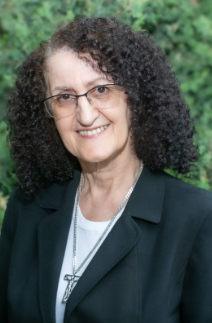
Sr. Luiza Dal Moro, MSCS
A Brazilian national, she is a Scalabrinian missionary and has an academic degree in Psychology. She currently serves as Provincial Superior of Our Lady of Fatima Province, based in Chicago, United States. In this position, she is responsible for animating, coordinating and accompanying the mission of the Scalabrinian Sisters in six countries in the Caribbean, Central America and North America. Her work involves not only organizational management, but also the spiritual and pastoral strengthening of communities in contexts marked by human mobility and the care of migrants.

Dr. Rose Jaji.
Born in Zimbabwe, she holds a PhD in Anthropology from the University of Bayreuth, Germany. She is currently a lecturer and researcher at the German Institute of Development and Sustainability. Her doctoral thesis focused on the integration of refugee women in Nairobi, Kenya. Her areas of research interest are migration and refuge, gender, conflict and peacebuilding.

Thomas Broch
Dr. Thomas Broch is a Catholic theologian and journalist. He worked as press officer for Caritas Germany and later for the Diocese of Rottenburg-Stuttgart in southwest Germany. He was also Episcopal Commissioner for Refugees. He currently works as a freelance journalist in the Global Church Department of the Diocese of Rottenburg-Stuttgart. He has a long-standing collaboration with CSEM and the Scalabrinian Missionary Sisters.

Roberto Marinucci
Theologian, director of the Interdisciplinary Journal of Human Mobility, REMHU, and researcher at CSEM.

